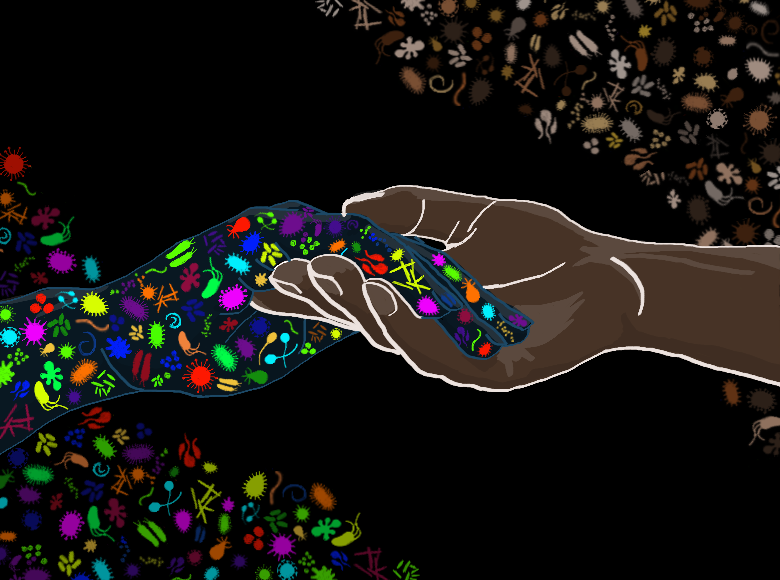
When something is posted on a Monday but should have appeared on a Sunday, the only appropriate solution is to backdate it, and so it has been done. It is surprising to me as well, that I have not quite mentioned much of the human being as an ecosystem, as a holobiont even though it has increasingly taken on a great deal of my thinking especially with the excellent Ascent of Information.
This is a gap that has sustained itself much too long, surely. But first, corpse-eating as an ecosystem.
- Huge Sponges Are Eating an Extinct Arctic Ecosystem
Underneath the Arctic is a vast ecosystem that lives off only the dead; the original producers, the methane-consuming worms, have long since died with the cessation of volcanic activity but the scavengers yet remain and they build a highly complex ecosystem derived completely off eating the fossilized remains of the worms.
Perhaps someday, after the more complex lifeforms such as sponges have all starved to death, the bacteria above them will continue life a little bit longer yet consuming the corpses of the sponges. - The holobiont as a unit of selection
Returning from living off death(or perhaps the long-dead) to considerations of what is life, I return to this concept. So, what is a holobiont besides a very complex word? I think it helps to originally distill it from a concept which was originally inspired in me from studying ants and specifically from the idea of a superorganism. If an ant colony could be understood as being, essentially, as one being with the queen being less of the “leader” and rather the reproductive unit, then it allows us to understand various other collective organizations as a single entity – and conversely, allows us to understand single entities as collective organizations of organisms with both cooperative and competitive interests.
And understanding organisms, and indeed, humans as ecosystems in ourselves I think is a significant leap in comprehension of how interactions flow both within and without ourselves. And much closer to the truth of things, insofar as it can be utilized to predict outcomes. Some outcomes may be more concerning than others. - Humans Are Doomed to Go Extinct
Habitat degradation, low genetic variation and declining fertility are setting Homo sapiens up for collapse.
The summary argument of the link is that humans actually have rather limited genetic variation compared to other species of animals, and thus sets us up for potential for extinction if there is a pathogen that can leap among us. Roko has often speculated on this in regards to “hostile superintelligence.” For my part, I’ve increasingly wondered if this could essentially be a notion that the human mindset can be attacked and monopolized by memetic viruses, and if that, indeed, can be equally the cause of extinction. - Happiness Makes You Dramatically More Successful
While we expected that well-being and optimism would matter to performance, we were taken aback by just how much they mattered. We saw four times as many awards earned by the initially happiest soldiers (upper quartile) compared with those who were un- happiest initially (lower quartile)–a huge difference in performance between those groups. This gap held when we accounted for status (officers versus enlisted soldiers), gender, race, education, and other demographic characteristics,” the researchers write in the MIT article.
I wonder if it has much to do with the consideration that procrastination is ultimately deeply linked to anxiety. - Concentration challenge
A rather simple little youtube video with a deceptively excellent message – our minds have limited processing capacity, and in fact, it is pretty easy to overwhelm it. And as we absorb increasingly large amounts of “noise” in modern superstimuli, one has to wonder how much of signal is lost.
This is used, I imagine, with the typical sleight of hand illusionist’s art as well – the goal is not to block the viewer’s vision as much as to provide so much to the viewer to see, or something so much more attention focused, that the obvious trick movement might as well be blind. We don’t see what we don’t expect to see.